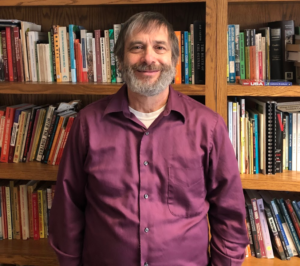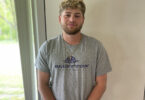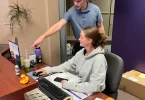As of March 2, COVID-19 has infected 80,270 people and killed about 3,000 people, primarily in mainland China, according to The New York Times. However, the disease — which is caused by a member of the coronavirus family — has other implications for eight Bluffton students. The students were originally planning to travel to China for their cross-cultural experience, but are now unable to do so because of the outbreak.
“For about a decade, we’ve been sending students to China,” said Paul Neufeld Weaver, director of global education. “We are deciding to not go to China in May because of the coronavirus.”
Instead, the students, along with Cynthia Bandish, professor of English, will travel to Greece. Bluffton has recently signed an agreement with the American College of Greece, giving students an option to study there for a semester beginning next fall, which helped facilitate the partnership. Another local partner, the Aegean Migrant Solidarity Project of Christian Peacemaker Teams, is involved as well.
The first ten days of the trip will be based in Athens, where the group will visit important cultural and historical sites around the area. Then the students will travel to the island of Lesvos for the next five days. This is a location where refugees have gathered as they try to enter Europe, so the group will learn about the refugee crisis through the experience.

Director of Global Education Paul Neufeld Weaver. Photo by Aubrey Bartel
“I’ve been in conversations with them all week, and they have said yes, they can receive our students and they’ll set up an amazing program for them,” Neufeld Weaver said.
Knowing they may not be able to travel to China, Neufeld Weaver said many of the students were primarily concerned about still being able to travel internationally for their cross-cultural.
“The students know that we were investigating that option, and they seemed very supportive of that, they seemed excited about it,” Neufeld Weaver said.
Nick Doehrman is one student who was planning on going to China for his cross-cultural. While he said he was very excited about the trip, he’s happy the school has decided to not put them in a situation where they could be at risk.
“As for Greece, I am super excited to be the first group of Bluffton students to be sent to Greece,” Doehrman said. “The university has been amazing and has basically planned a whole new trip in a week which isn’t easy to do, so I appreciate the amount of work they have put in.”
This decision came after weeks of watching the growth of the coronavirus, consulting with students, hearing parents’ concerns and talking among administrators. The level three warning from the Centers for Disease Control and Prevention, recommending no nonessential travel to China, was also considered.
According to Angela Montel, professor of biology, one of the things that makes the coronavirus so deadly is its ability to transfer from person to person.
“If you can only pick it up from animals, then you just stop your contact with those animals and you can stop the outbreak,” Montel said. “Now they’ve very much determined it spreads from human to humans, so that makes it more serious.”
Montel, who has a Ph.D. in microbiology and immunology, explained that while humans frequently get coronaviruses, this strain is particularly dangerous.
“We get infected with coronaviruses all the time — they’re the second leading cause of the common cold, behind a rhinovirus,” Montel said. “Usually, they cause upper respiratory infections. They’re talking about this one causing lower respiratory infections like pneumonia, and that’s why people are dying.”
A similar situation happened about six years ago when the H1N1 virus prevented a cross-cultural experience to Mexico. Neufeld Weaver said in both cases, the educational experience and safety were two things that needed to be balanced.
“What we try to do with our cross-cultural program is find a place which will provide the richest possible cross-cultural experience where students learn about the other culture, about wealth and poverty, about violence and non-violence, about social justice, but we also always have to look at safety of course,” Neufeld Weaver said.






